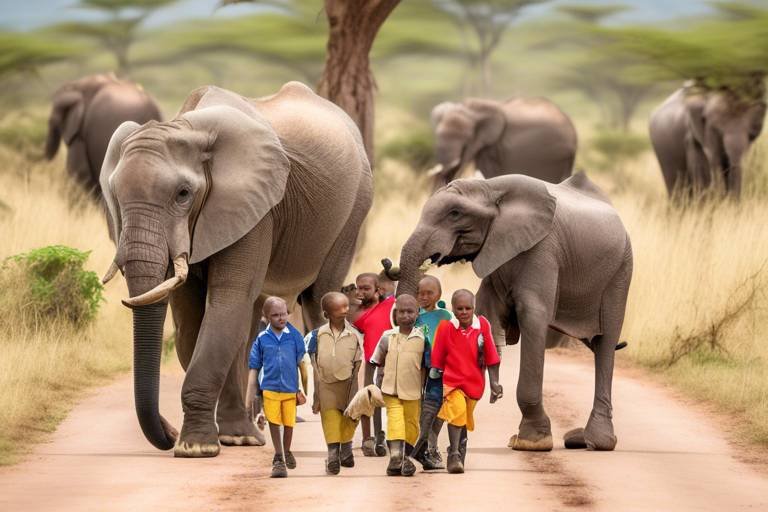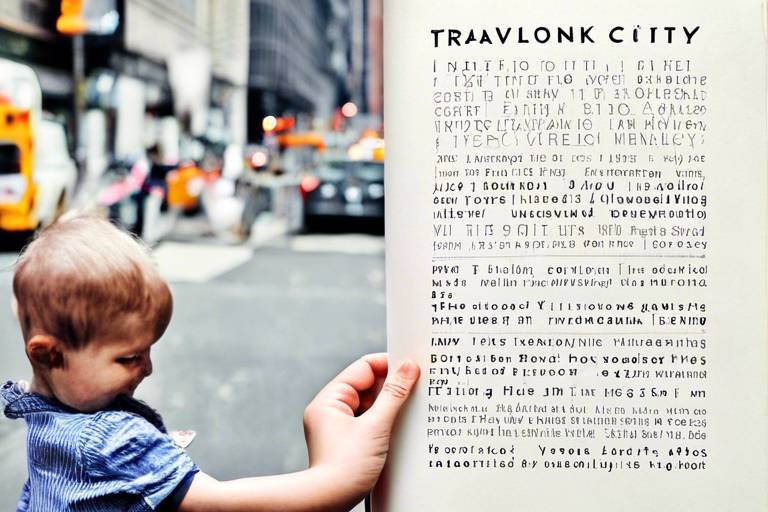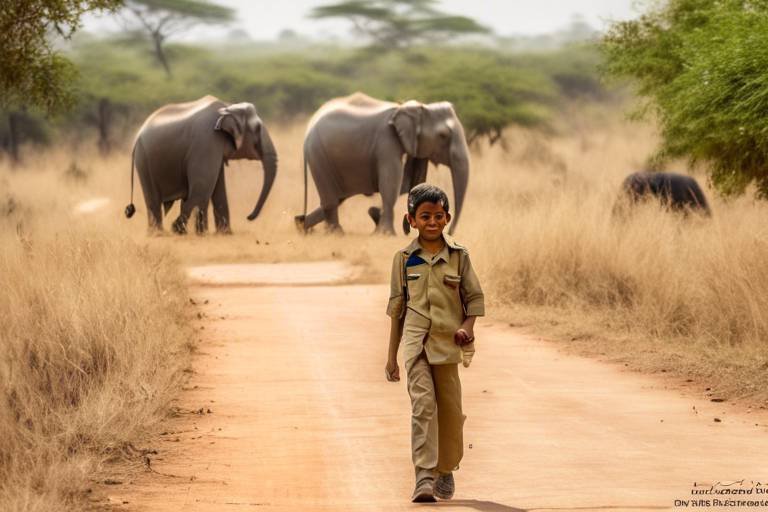Teaching Kids about Animals: Family Safari in Tanzania
Imagine a place where the sun rises over vast savannahs, casting golden rays on herds of elephants and lions basking in the morning light. Tanzania is that place, a vibrant tapestry of wildlife and natural beauty that offers families an unforgettable adventure. Taking your kids on a safari here isn’t just about spotting the Big Five; it’s about immersing them in the wonders of nature and teaching them valuable lessons about wildlife, conservation, and the delicate balance of our ecosystems.
Picture yourself in a sturdy safari jeep, the wind tousling your hair as you bounce along rugged trails. Your children’s eyes widen with excitement as they spot a giraffe munching on acacia leaves or a cheetah sprinting across the plains. These experiences create lasting memories and ignite a passion for wildlife that can influence their values for a lifetime. Teaching kids about animals in their natural habitat is an exhilarating way to foster a sense of curiosity and respect for the environment.
In Tanzania, the diversity of wildlife is simply astounding. From the majestic African elephant to the elusive leopard, each species plays a crucial role in the ecosystem. By observing these animals, children can learn about their behaviors, habitats, and the challenges they face due to human activities. This hands-on learning experience is far more impactful than any classroom lesson, as it allows kids to connect with nature on a personal level.
As families embark on this journey, they also step into the shoes of conservationists. Understanding the importance of conserving wildlife and their habitats is a lesson that resonates deeply. Safaris not only provide thrilling encounters with animals but also offer insights into the critical efforts being made to protect them. Kids can learn about the threats these animals face, such as habitat loss and poaching, and how they can contribute to their protection.
In Tanzania, various organizations work tirelessly to safeguard wildlife. Families can engage with these initiatives, learning how to become stewards of the environment. For instance, many parks have programs that allow visitors to participate in conservation activities, such as tree planting or wildlife monitoring. This hands-on involvement not only enhances the safari experience but also instills a sense of responsibility in children, making them feel like they are part of something bigger.
Moreover, local communities play an essential role in conservation efforts. When families support community-based tourism, they help ensure that local people benefit from wildlife conservation. This engagement fosters a sense of pride and responsibility among local populations, encouraging them to protect their natural resources. By visiting local markets, participating in cultural exchanges, or even staying in community-run lodges, families can make a positive impact while enriching their safari experience.
Many parks in Tanzania offer educational programs specifically designed for kids. These programs often include guided nature walks, wildlife tracking, and interactive workshops that teach children about the flora and fauna of the region. Such activities not only enhance their understanding of wildlife but also make learning fun and engaging. Imagine your child identifying animal tracks or learning to recognize different bird calls—it’s an adventure that combines education with excitement!
Ultimately, a family safari in Tanzania is more than just a vacation; it’s an opportunity to bond as a family while learning about the natural world. The thrill of encountering wildlife, the joy of engaging in conservation, and the excitement of discovering new cultures all come together to create a truly enriching experience. So, pack your bags, grab your binoculars, and get ready for an adventure that your family will cherish forever!
- What is the best time to go on a family safari in Tanzania? The dry season, from June to October, is ideal for wildlife viewing as animals gather around water sources.
- Are safaris safe for children? Yes, safaris are generally safe for children, especially when guided by experienced professionals.
- What should we pack for a family safari? Essential items include sunscreen, hats, insect repellent, binoculars, and a good camera to capture those unforgettable moments.
- Can we participate in conservation activities during our safari? Absolutely! Many parks offer programs where families can engage in conservation efforts.

Understanding Tanzania's Wildlife
Tanzania is a treasure trove of biodiversity, boasting some of the most stunning and diverse ecosystems on the planet. From the sprawling savannahs of the Serengeti to the lush wetlands of the Selous Game Reserve, this East African gem is home to an astounding array of wildlife. Imagine standing on a sunlit plain, where the golden grass sways gently in the breeze, and in the distance, you can spot a herd of elephants lumbering majestically across the horizon. It's not just a sight; it's a profound reminder of the beauty and fragility of our planet's ecosystems.
The unique species found in Tanzania are not only fascinating but also play critical roles in their environments. For instance, the African Lion, often dubbed the "king of the jungle," is a top predator that helps maintain the balance of the ecosystem by controlling herbivore populations. Similarly, the African Elephant acts as a "landscape architect," creating pathways through dense vegetation, which allows other species to thrive. These interactions illustrate the intricate web of life that exists in Tanzania and highlight the importance of each animal, no matter how big or small.
Moreover, Tanzania is home to the renowned Great Migration, a spectacular event where millions of wildebeest, zebras, and other animals travel across the Serengeti in search of greener pastures. This natural phenomenon is not only a remarkable sight but also a vital part of the ecosystem, demonstrating the interconnectedness of species and their environments. Witnessing this migration can be a life-changing experience for children, as it provides a firsthand look at nature's rhythms and the challenges wildlife face.
Understanding the significance of these species and their habitats is crucial for the next generation. By introducing children to the wonders of Tanzania's wildlife, we can foster a sense of curiosity and appreciation for nature. This experience can ignite a passion for conservation and encourage kids to become stewards of the environment. As they learn about the delicate balance of ecosystems, they begin to understand that every creature has a role to play, and that protecting these animals is essential for the health of our planet.
In conclusion, a family safari in Tanzania is more than just an adventure; it's an opportunity to educate and inspire young minds about the importance of wildlife and biodiversity. By immersing children in this vibrant world, we can help them develop a lifelong love for nature and a commitment to preserving it for future generations.

The Importance of Conservation
When you think about taking your family on a safari, it’s easy to get lost in the excitement of spotting majestic elephants or graceful giraffes. However, beneath that thrill lies a fundamental lesson: the importance of conservation. Teaching children about conservation during a family safari in Tanzania is not just beneficial; it’s essential for nurturing a generation that values and protects our planet. Imagine your child witnessing a lioness teaching her cubs to hunt, or a herd of wildebeests migrating across the Serengeti. These experiences are not only awe-inspiring but also serve as powerful reminders of the delicate balance of nature.
Conservation education can instill a sense of responsibility in children, making them aware that their actions impact wildlife and their habitats. For instance, understanding that the loss of a single species can ripple through the ecosystem can be an eye-opening concept for young minds. It’s like pulling one thread from a tapestry; the entire piece becomes unraveled. By teaching kids about the interconnectedness of life, we can help them appreciate the role they play in preserving biodiversity.
During your safari, you might encounter various conservation initiatives aimed at protecting endangered species and their habitats. These programs often involve local communities, which leads to a deeper understanding of how conservation efforts can uplift and empower people while safeguarding wildlife. For example, organizations like the African Wildlife Foundation work hand-in-hand with local communities to develop sustainable practices that benefit both the environment and the people living in it. Families can engage with these initiatives, perhaps by participating in a community-led project or visiting a wildlife rehabilitation center. This hands-on involvement not only enriches the safari experience but also teaches children valuable lessons about teamwork, empathy, and stewardship.
Moreover, children can learn about the threats facing wildlife, such as poaching and habitat loss. By discussing these issues openly, parents can help their children understand the importance of conservation advocacy. It’s crucial to convey that every small action counts, whether it’s reducing plastic use or supporting wildlife charities. This knowledge can empower kids to become advocates for change, ensuring that they carry the torch of conservation into the future.
Incorporating conservation discussions into your safari experience can take many forms. For instance, consider engaging your kids in a conversation about the animals you see and their roles in the ecosystem. Ask questions like, “What do you think would happen if all the zebras disappeared?” This not only promotes critical thinking but also makes the experience interactive and memorable. Additionally, many safari lodges offer educational programs tailored for children, where they can learn about local wildlife and conservation efforts in a fun and engaging way.
Ultimately, a family safari in Tanzania is more than just an adventure; it’s an opportunity to cultivate a sense of wonder and responsibility towards the natural world. By emphasizing the importance of conservation, you’re not only enriching your child's experience but also planting the seeds for a lifelong passion for wildlife and the environment. So, as you embark on this incredible journey, remember that every sighting and every story shared is a chance to inspire the next generation of conservationists.

Wildlife Protection Initiatives
When you embark on a family safari in Tanzania, you're not just going on an adventure; you're stepping into a world where conservation is paramount. Tanzania is home to remarkable wildlife, and various organizations are dedicated to protecting these magnificent creatures and their habitats. Initiatives focused on wildlife protection play a crucial role in maintaining the balance of ecosystems, ensuring that future generations can witness the beauty of nature just as we do today.
One of the most notable organizations is the Tanzania Wildlife Conservation Authority (TWCA), which works tirelessly to manage and protect the country's wildlife resources. TWCA implements policies that promote sustainable land use and wildlife management, helping to mitigate human-wildlife conflict. This organization also collaborates with local communities to create conservation programs that benefit both people and wildlife.
Another key player in the conservation effort is the African Wildlife Foundation (AWF). Their initiatives focus on protecting endangered species, such as elephants and rhinos, while also addressing the root causes of wildlife decline. The AWF engages in community outreach, educating locals about the importance of wildlife conservation and providing them with alternative livelihoods that do not rely on poaching or habitat destruction.
Families visiting Tanzania can participate in these initiatives in various ways. Many safari lodges partner with conservation organizations to offer guests the opportunity to engage in hands-on conservation activities. For example, families might participate in wildlife monitoring programs, where they can help track animal movements and gather data that contributes to ongoing research. This not only provides a unique learning experience for children but also fosters a sense of responsibility and connection to the natural world.
In addition to direct involvement, families can also support conservation efforts through donations. Many organizations have programs that allow visitors to contribute to wildlife protection initiatives, ensuring that their safari experience has a lasting positive impact on the environment. By educating children about these initiatives, parents can instill values of stewardship and responsibility, making the safari experience even more enriching.
Ultimately, the wildlife protection initiatives in Tanzania serve as a reminder that we all have a role to play in preserving our planet's biodiversity. By participating in these efforts, families can help safeguard the incredible wildlife that makes Tanzania a truly special place. So, as you plan your family safari, consider how you can contribute to the ongoing efforts to protect these magnificent creatures and their habitats.

Community Involvement
When embarking on a family safari in Tanzania, one of the most enriching experiences can be the opportunity to engage with local communities. These communities are not just bystanders to the wildlife spectacles; they are integral to the conservation efforts that protect these magnificent creatures and their habitats. By involving families in community activities, children can learn firsthand about the culture, traditions, and challenges faced by the local people who share their land with wildlife.
Imagine your child participating in a traditional dance with local Maasai warriors or helping to plant trees as part of a reforestation project. Such experiences not only make for incredible stories but also instill a sense of responsibility and empathy towards both people and nature. This connection can create lasting memories and a deep understanding of the delicate balance between wildlife conservation and community needs.
Many lodges and safari operators offer programs that facilitate community involvement. These programs often include:
- Visiting local markets to learn about traditional crafts and foods.
- Participating in community-led conservation projects.
- Attending educational workshops that highlight the importance of wildlife and environmental sustainability.
Moreover, supporting local businesses during your safari can have a significant impact. When families purchase handmade crafts or participate in community tours, they contribute directly to the local economy, which in turn fosters a greater commitment to conservation. This cyclical relationship between tourism and community welfare reinforces the idea that protecting wildlife is not solely a responsibility of international organizations but also of the communities that live alongside these animals.
Involving children in these activities helps them to appreciate the interconnectedness of humans and wildlife. They learn that the survival of animals like elephants and lions is tied to the well-being of local people, and this understanding can be a powerful motivator for future conservation efforts. As they engage with the community, they may even discover their own passion for wildlife and environmental stewardship, which can shape their values and actions for years to come.
Ultimately, a family safari in Tanzania is more than just an adventure; it’s an opportunity to foster a sense of community and shared responsibility. By participating in local initiatives, families can help ensure that the natural beauty of Tanzania is preserved for generations to come. So, as you plan your safari, consider how you can incorporate community involvement into your itinerary. It’s not just about seeing the Big Five; it’s about making a difference.
Q: How can we get involved with local communities during our safari?
A: Many safari lodges offer community engagement programs that include visits to local villages, participation in conservation projects, and cultural experiences. It's best to check with your safari operator for specific options.
Q: What benefits do local communities receive from tourism?
A: Tourism provides a vital source of income for local communities, helping to fund schools, healthcare, and conservation efforts. When tourists support local businesses, they contribute to the overall well-being of the community.
Q: Are there any risks associated with community involvement?
A: As with any travel experience, it's important to be respectful and mindful of local customs and practices. Engaging in community activities should be done with sensitivity and understanding.
Q: How can my children learn more about conservation during our trip?
A: Many parks and lodges offer educational programs designed for children, including guided nature walks, wildlife tracking, and workshops on environmental conservation.

Educational Programs
When embarking on a family safari in Tanzania, one of the most enriching aspects is the availability of designed specifically for kids. These programs are not just about observing wildlife; they are immersive experiences that foster a deeper understanding of the natural world. Imagine your child, binoculars in hand, learning about the intricate relationships between different species while simultaneously getting a front-row seat to the majestic wildlife of the Serengeti. It's like stepping into a living classroom where the lessons are as dynamic as the animals themselves!
Many national parks and reserves in Tanzania offer tailored educational initiatives that engage children in various ways. For instance, programs often include guided nature walks, where trained guides share fascinating insights about the local flora and fauna. These walks can spark a child's curiosity, prompting questions like, "Why do elephants have such large ears?" or "What do zebras eat?" Such inquiries are not just encouraged; they are the very essence of the learning experience.
Additionally, some parks provide interactive workshops where children can participate in hands-on activities. These might include:
- Wildlife Tracking: Kids can learn how to identify animal tracks and understand the behavior of different species.
- Conservation Projects: Engaging in activities like tree planting or participating in clean-up drives helps instill a sense of responsibility towards the environment.
- Art and Nature: Some programs encourage children to express their experiences through art, whether it's sketching animals or creating crafts from natural materials.
These educational programs not only make learning fun but also emphasize the importance of conservation and biodiversity. By participating, children gain a sense of ownership over the natural world, which can lead to a lifelong commitment to protecting it. It's a powerful transformation—one that turns a simple family trip into a meaningful journey of discovery and growth.
Moreover, many lodges and safari companies collaborate with local schools and conservation organizations to ensure that these programs are not only informative but also culturally relevant. This connection to the local community enriches the experience, allowing children to learn about the customs and traditions of the people who share their home with these incredible animals.
In conclusion, educational programs during a family safari in Tanzania are a fantastic way to blend adventure with learning. They provide children with the tools to appreciate nature's wonders while developing a sense of responsibility towards conservation. So, as you plan your safari, consider the educational opportunities available—your kids will thank you for it, and you might just find yourself learning a thing or two as well!
Q: What age group are educational programs suitable for?
A: Most programs cater to a wide range of ages, typically from 5 to 16 years old. However, some activities may be adapted for younger children.
Q: Are these programs included in the safari package?
A: Many lodges and safari companies include educational programs in their packages, but it's best to check in advance to confirm.
Q: How can I prepare my child for the educational programs?
A: Encourage your child to read about Tanzanian wildlife and conservation efforts before the trip. Discussing what they might see can also build excitement and curiosity.
Q: Can parents join in on the educational activities?
A: Absolutely! Many programs are designed to be family-friendly, allowing parents to participate alongside their children.

Experiencing Animal Behavior
When you embark on a family safari in Tanzania, you're not just going on a vacation; you're stepping into a living classroom where the lessons are as vibrant and dynamic as the wildlife itself. Imagine this: you're quietly watching a herd of elephants as they meander through the savannah, their massive ears flapping gently in the warm breeze. This isn’t just a sight; it's an opportunity for children to witness the intricate social structures of these majestic creatures. Experiencing animal behavior firsthand can ignite a spark of curiosity in young minds, making them eager to learn more about the natural world around them.
Observing animals in their natural habitats provides a unique lens through which children can understand complex behaviors. For instance, watching a lion pride interact can unveil the roles each member plays within the group, showcasing teamwork and familial bonds. Similarly, seeing a mother cheetah teaching her cubs to hunt can illustrate the concept of survival and the skills necessary to thrive in the wild. These experiences can be more impactful than any textbook, as they allow children to connect emotionally with the subjects they’re learning about.
Moreover, the unpredictability of wildlife adds an element of excitement. You never know when a herd of wildebeests will cross your path or when a curious giraffe will peek into your vehicle! This element of surprise keeps children engaged and encourages them to ask questions, fostering a sense of wonder and exploration. To enhance this experience, many safari guides are trained to share fascinating stories about the animals’ behaviors, which can further enrich children's understanding.
In addition to direct observation, families can participate in activities designed to deepen their learning. For example, some parks offer guided walks where children can track animal footprints, learn about the different sounds animals make, and even identify various plants that are crucial to the ecosystem. These hands-on experiences can be incredibly rewarding, making the lessons learned during the safari stick long after the trip has ended.
Furthermore, discussing animal behavior can lead to broader conversations about ecology and conservation. For instance, understanding why certain animals migrate can lead to discussions about climate change and its impact on wildlife. This connection between observation and larger environmental issues can help children develop a sense of responsibility towards the planet. By seeing the animals in their natural habitats, children can grasp the importance of biodiversity and the need to protect these ecosystems.
In summary, experiencing animal behavior during a family safari in Tanzania is not just about watching animals; it's about engaging with nature in a way that is educational, exciting, and profoundly impactful. The lessons learned can inspire a lifelong passion for wildlife and conservation, ensuring that the next generation is equipped to protect our planet.
- What is the best time to go on a family safari in Tanzania? The best time is typically during the dry season from June to October when animals are more easily spotted.
- Are safaris safe for children? Yes, with proper guidance and precautions, safaris can be safe and enjoyable for children of all ages.
- What should we pack for a family safari? Essentials include comfortable clothing, binoculars, a camera, sunscreen, and insect repellent.
- Can children participate in educational programs during the safari? Absolutely! Many parks offer tailored educational programs for kids to enhance their learning experience.

Planning the Perfect Family Safari
Planning a family safari can be as thrilling as the adventure itself! Imagine the excitement of seeing a lion lounging under a tree or a herd of elephants splashing in a watering hole. But before you pack your bags and grab your binoculars, there are a few key factors to consider to ensure that your safari is not only fun but also safe and educational for the entire family. The first step is to choose the right time of year for your safari. Tanzania's dry season, from June to October, is often recommended because animals are easier to spot as they gather around water sources. However, if your family enjoys the lush landscapes and vibrant wildlife births, the wet season from November to April can be equally captivating.
Next, think about the accommodations. Family-friendly lodges can make a huge difference in your experience. Look for places that offer amenities such as swimming pools, children's programs, and spacious family rooms. Some lodges even provide childcare services, allowing parents to enjoy a romantic evening under the stars while knowing their kids are in good hands. When selecting accommodations, consider the following:
| Feature | Importance |
|---|---|
| Kid-friendly amenities | Ensures comfort and entertainment for children. |
| Guided family tours | Enhances learning and safety while exploring. |
| Proximity to wildlife | Maximizes wildlife viewing opportunities. |
Incorporating engaging activities during your safari is another essential aspect. Kids can quickly lose interest if they are just sitting in a vehicle for hours on end. So, why not mix things up? Many safari lodges offer exciting activities like guided nature walks, where children can learn about the smaller wonders of the ecosystem, or even cultural visits to local communities. These experiences not only keep kids engaged but also foster a deeper appreciation for the environment and the people who live in it.
Moreover, consider your family's interests and energy levels when planning your daily itinerary. Some families thrive on action-packed days filled with game drives, while others might prefer a more relaxed pace, allowing for plenty of downtime. Remember, the goal is to create lasting memories, so don’t be afraid to adjust your plans based on how everyone is feeling. After all, a safari is as much about enjoying the journey as it is about the destination!
Lastly, don’t forget to pack wisely! Ensure you have appropriate clothing for both warm days and cooler evenings, along with essentials like sunscreen, hats, and insect repellent. A good pair of binoculars can also enhance your wildlife viewing experience, allowing your children to spot animals from a distance without disturbing their natural behavior.
In conclusion, planning the perfect family safari involves a blend of careful consideration, flexibility, and a sense of adventure. By choosing the right time, accommodations, and activities, your family can embark on a journey that is not only thrilling but also educational, leaving them with unforgettable experiences and a newfound respect for the natural world.
- What is the best time to go on a family safari in Tanzania? The dry season from June to October is ideal for wildlife viewing.
- Are there family-friendly lodges in Tanzania? Yes, many lodges cater specifically to families with amenities and activities for kids.
- What should we pack for a family safari? Essentials include lightweight, breathable clothing, sunscreen, insect repellent, and binoculars.
- How can we engage our kids during the safari? Look for lodges that offer guided nature walks, cultural visits, and educational programs.

Choosing Family-Friendly Lodges
When planning a family safari in Tanzania, one of the most critical decisions you'll make is choosing the right lodge. A family-friendly lodge can transform your safari experience from merely enjoyable to truly unforgettable. Imagine a place where your kids can play safely while you relax and soak in the stunning views of the African landscape. But what exactly makes a lodge suitable for families? Let’s dive into some essential factors to consider.
First and foremost, safety is paramount. Look for lodges that prioritize the well-being of their guests, particularly children. Many lodges have security measures in place, such as fenced areas and trained staff who can guide you during wildlife encounters. Additionally, check if the lodge offers child-proofing options in the rooms, such as securing balconies or providing safety gates.
Another crucial aspect is the availability of family-oriented activities. Opt for lodges that offer a variety of engaging experiences tailored for children. For example, some lodges provide guided nature walks designed specifically for younger guests, where they can learn about the flora and fauna in a fun and interactive way. Others might have swimming pools, game rooms, or organized wildlife safaris that cater to families.
Moreover, consider the accommodations themselves. Family-friendly lodges often feature spacious rooms or family suites that can comfortably accommodate everyone. Look for options with multiple beds or interconnected rooms, allowing parents to keep an eye on their little ones while still enjoying some privacy. Many lodges also offer amenities like mini-fridges and kitchenettes, which can be a lifesaver for families with young children who may need snacks or quick meals.
Don’t forget to check the cuisine offered at the lodge. A good family-friendly lodge should provide a diverse menu that caters to various tastes, including kid-friendly options. Some lodges even offer cooking classes for families, allowing you to bond over preparing local dishes while learning about Tanzanian culture.
Lastly, consider the lodge's location. Being close to major attractions and wildlife hotspots can save you travel time and keep the excitement levels high. Look for lodges that provide easy access to national parks and game reserves, ensuring that you can maximize your safari experience without long drives that might wear out the kids.
In summary, choosing a family-friendly lodge in Tanzania is all about finding a balance between adventure and comfort. By considering safety, activities, accommodations, cuisine, and location, you can ensure that your family safari is filled with amazing memories and educational experiences. After all, a well-planned lodge stay can be the perfect launchpad for your family's African adventure!
- What should I pack for a family safari? - Pack lightweight clothing, a hat, sunscreen, and binoculars for wildlife viewing. Don’t forget any necessary medications and comfort items for your kids!
- Are safaris safe for children? - Yes, safaris can be safe for children, especially when you choose reputable lodges and follow the guidelines provided by your guides.
- What age is appropriate for children to go on a safari? - Most lodges welcome children of all ages, but it's best to check the specific age requirements and activities available.

Engaging Activities for Kids
When it comes to family safaris in Tanzania, the adventure is not just about witnessing breathtaking landscapes and majestic wildlife; it’s also about engaging the little ones in activities that spark their imagination and curiosity. Imagine your child’s eyes lighting up as they spot a herd of elephants or hear the roar of a lion in the distance! To make the most of this incredible experience, here are some engaging activities that ensure your kids are not just passive observers but active participants in the wonders of nature.
First off, many safari lodges offer guided nature walks specifically designed for families. These walks are led by knowledgeable guides who can explain the intricacies of the ecosystem. Children can learn about animal tracks, discover various plant species, and even engage in birdwatching. It’s like stepping into a real-life adventure book where every tree and animal has a story to tell! Plus, these walks can be a fantastic way for kids to burn off some energy while soaking in the beauty of the wilderness.
Another exciting activity is the Junior Ranger Program, which some national parks offer. This program is tailored for children and includes fun challenges that teach them about wildlife conservation, animal behavior, and the importance of protecting their habitats. Kids can earn badges or certificates upon completion, giving them a sense of accomplishment and pride. Just think about how cool it would be for your child to come home with a badge that says they are a certified Junior Ranger!
For those who prefer a more hands-on approach, many lodges provide craft workshops where children can create art inspired by the animals and landscapes they see. Using natural materials like leaves, stones, and twigs, kids can make unique souvenirs that remind them of their safari adventure. This not only fosters creativity but also deepens their connection to nature as they reflect on their experiences.
Additionally, consider incorporating storytelling sessions into your safari routine. After a day of exploration, gather around the campfire as local guides share traditional tales and folklore about the animals and the land. This not only entertains but also educates children about the cultural significance of wildlife in Tanzania. These stories can ignite their imagination and inspire a love for nature and wildlife.
Lastly, don’t forget about the magic of night safaris. These excursions allow families to experience the thrill of spotting nocturnal animals. With the stars twinkling overhead and the sounds of the African night surrounding you, children will be captivated by the mystery and excitement of wildlife that comes alive after dark. It’s a unique opportunity that adds an extra layer of adventure to your safari.
In summary, a family safari in Tanzania can be a treasure trove of engaging activities for kids. From guided nature walks and Junior Ranger programs to creative workshops and storytelling sessions, there is no shortage of ways to keep children excited and involved. By participating in these activities, children not only learn about wildlife and conservation but also create lasting memories that will stay with them for a lifetime. So, pack your bags and get ready for an unforgettable adventure that combines education with excitement!
- What is the best time to go on a family safari in Tanzania? The dry season, from June to October, is ideal for wildlife viewing as animals gather around water sources.
- Are safaris safe for children? Yes, safaris can be safe for children when proper precautions are taken, such as choosing family-friendly lodges and following the guides' instructions.
- What should we pack for a family safari? Essentials include lightweight clothing, binoculars for wildlife viewing, a first-aid kit, and plenty of sunscreen.
- Can children participate in all safari activities? While most activities are suitable for children, some may have age restrictions, so it’s best to check with your tour operator.
Frequently Asked Questions
- What wildlife can we expect to see on a family safari in Tanzania?
Tanzania is renowned for its rich biodiversity. Families can expect to see a variety of animals including lions, elephants, giraffes, zebras, and many species of birds. Each safari offers a unique experience, as the wildlife is always on the move, making every trip an adventure!
- How can a safari educate children about conservation?
Safaris provide a hands-on experience where children can learn about the importance of wildlife and their habitats. By observing animals in their natural environment, kids can develop a deeper understanding of biodiversity and the need for conservation efforts to protect these species.
- Are there educational programs available for kids during the safari?
Absolutely! Many parks in Tanzania offer educational programs tailored for children. These programs often include guided tours, interactive activities, and workshops that teach kids about animal behavior, ecosystems, and the importance of conservation.
- How can families get involved in wildlife protection initiatives?
Families can participate in various wildlife protection initiatives by visiting conservation centers, supporting local conservation projects, or even volunteering during their stay. Engaging with local communities and learning about their efforts can also inspire a sense of responsibility towards wildlife protection.
- What should we look for in family-friendly lodges?
When choosing a lodge, look for accommodations that offer child-friendly amenities such as family rooms, swimming pools, and organized activities for kids. It's also beneficial to find lodges that prioritize safety and have knowledgeable staff who can engage with children about wildlife.
- What engaging activities can we do with kids during the safari?
There are plenty of fun activities to keep kids engaged during a safari! Consider nature walks, scavenger hunts, or even photography sessions where kids can capture their favorite animals. Many lodges also offer crafts and storytelling sessions that revolve around the local culture and wildlife.
- Is it safe to take children on a safari?
Yes, safaris can be safe for children, provided that safety guidelines are followed. Always choose a reputable safari operator, listen to your guide's instructions, and ensure that children remain in the vehicle during wildlife encounters. Safety is a top priority on these adventures!
- What is the best time to go on a family safari in Tanzania?
The best time for a family safari in Tanzania is during the dry season, which runs from June to October. During this period, animals are more easily spotted as they gather around water sources, making it an ideal time for wildlife viewing.



















